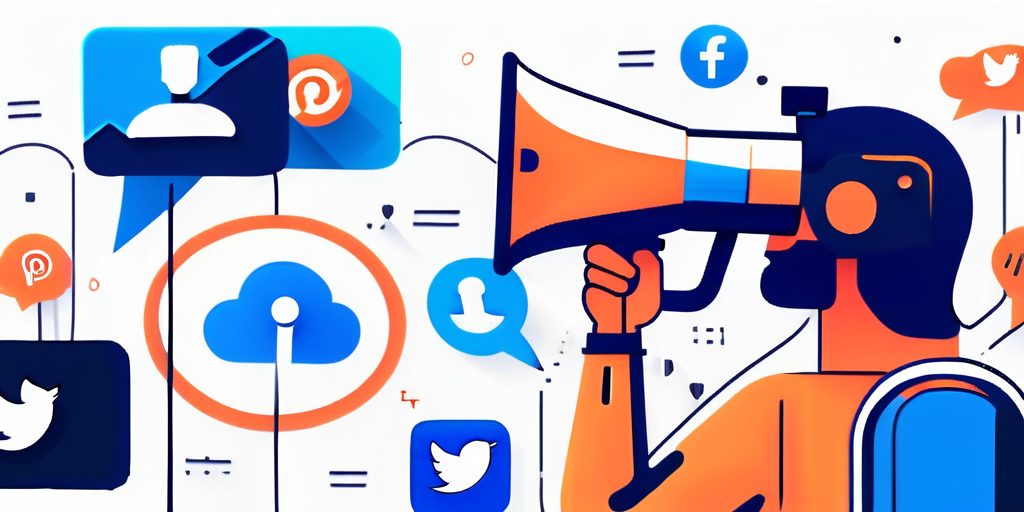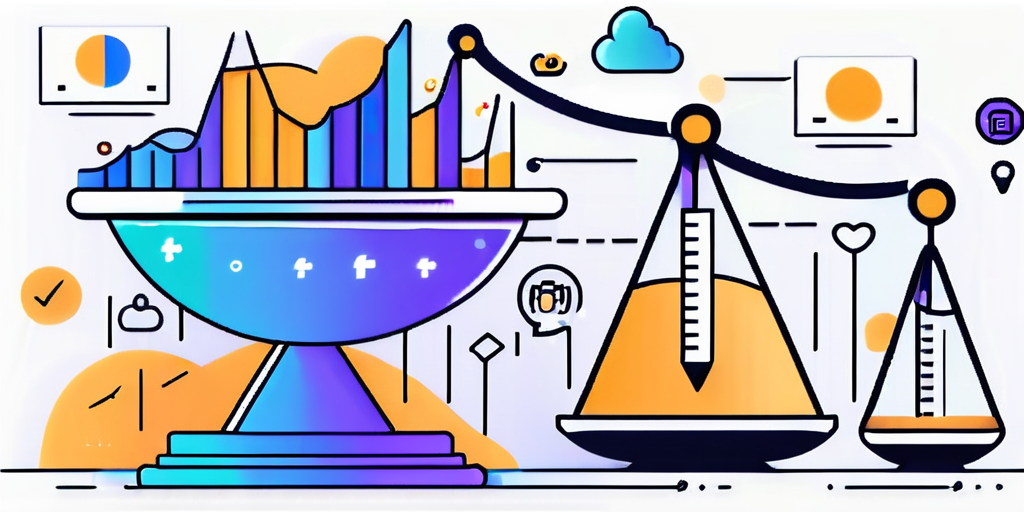
Influencer marketing is a modern and innovative approach to public relations that leverages the power of influential individuals, often on social media, to promote a brand, product, or service. This form of marketing has gained significant traction in recent years due to the rise of digital platforms and the shift in consumer behavior towards online shopping and digital content consumption.
The core concept of influencer marketing revolves around the idea that consumers are more likely to trust and engage with a brand if it is endorsed by someone they admire or respect. This could be a celebrity, a popular blogger, a well-known industry expert, or even an everyday individual who has managed to amass a large following on social media due to their unique content or personality.
Understanding Influencer Marketing
Influencer marketing is a strategy that involves partnering with individuals who have a strong influence over potential customers. These influencers can help a brand reach a larger audience, increase brand awareness, and drive sales by promoting the brand’s products or services to their followers.
The effectiveness of influencer marketing lies in its ability to leverage the trust and credibility that influencers have built with their audience. When an influencer endorses a product or service, their followers are more likely to perceive it as reliable and high-quality, which can significantly influence their purchasing decisions.
Types of Influencers
Influencers can be categorized into several types based on their follower count, the platform they use, and their area of expertise. These include mega-influencers (celebrities with millions of followers), macro-influencers (individuals with hundreds of thousands to a million followers), micro-influencers (individuals with a few thousand to a hundred thousand followers), and nano-influencers (individuals with less than a thousand followers).
Each type of influencer offers different advantages. For instance, mega-influencers can provide massive reach and visibility, while micro-influencers and nano-influencers often have a more engaged and niche audience, which can lead to higher conversion rates.
Platforms for Influencer Marketing
Influencer marketing can be carried out on various digital platforms, including social media sites like Instagram, YouTube, Facebook, and Twitter, as well as blogs and podcasts. The choice of platform depends on the target audience, the nature of the product or service, and the influencer’s area of expertise.
For instance, Instagram is a popular platform for fashion, beauty, and lifestyle brands, while YouTube is often used for tech and gaming products. Blogs and podcasts, on the other hand, are ideal for in-depth product reviews and discussions.
The Role of Influencer Marketing in Public Relations
Influencer marketing plays a crucial role in public relations by helping brands build and maintain a positive image in the public eye. By partnering with influencers who align with their brand values and target audience, companies can create authentic and engaging content that resonates with consumers and enhances their brand reputation.
Furthermore, influencers can help brands manage crises and mitigate negative publicity. When a crisis occurs, influencers can use their platform to communicate the brand’s message, provide updates, and reassure their followers. This can help maintain consumer trust and loyalty during challenging times.
Building Brand Awareness
One of the primary benefits of influencer marketing in public relations is its ability to increase brand awareness. By featuring a brand’s products or services in their content, influencers can expose the brand to a wider audience, helping it gain recognition and visibility.
Moreover, influencers can help create a buzz around a new product launch or a special event, generating excitement and anticipation among their followers. This can significantly boost the brand’s visibility and reach, leading to increased sales and market share.
Enhancing Brand Image
Influencer marketing can also enhance a brand’s image by associating it with popular and respected individuals. When an influencer endorses a brand, it not only validates the brand’s quality and reliability but also positions it as trendy and desirable.
In addition, influencers can help shape a brand’s image by showcasing its values and personality. For instance, a brand that values sustainability can partner with eco-conscious influencers to highlight its commitment to environmental responsibility.
Challenges and Considerations in Influencer Marketing
While influencer marketing offers numerous benefits, it also comes with challenges and considerations that brands need to be aware of. These include finding the right influencer, ensuring authenticity, dealing with negative publicity, and measuring the effectiveness of influencer campaigns.
Furthermore, brands need to comply with advertising regulations and disclosure requirements to maintain transparency and trust with consumers. This includes clearly indicating sponsored content and paid partnerships with influencers.
Finding the Right Influencer
Finding the right influencer is a critical aspect of influencer marketing. Brands need to ensure that the influencer’s audience aligns with their target market and that the influencer’s values and image are consistent with their brand identity.
Moreover, brands need to consider the influencer’s engagement rate, credibility, and content quality. It’s not just about the number of followers an influencer has, but also about their ability to engage and influence their audience.
Ensuring Authenticity
Authenticity is key in influencer marketing. Consumers are savvy and can easily spot inauthentic endorsements. Therefore, brands need to ensure that their influencer partnerships are genuine and that the influencer truly believes in the product or service they are promoting.
This can be achieved by giving influencers creative freedom to create content that resonates with their audience and reflects their personal style and voice. Brands should also encourage influencers to disclose their partnership to maintain transparency and trust with their followers.
Measuring the Effectiveness of Influencer Marketing
Measuring the effectiveness of influencer marketing can be challenging due to the qualitative nature of this strategy. However, there are several metrics that brands can use to evaluate the success of their influencer campaigns, including reach, engagement, conversion rate, and return on investment (ROI).
Moreover, brands can use social listening tools to monitor the sentiment and conversations around their brand on social media. This can provide valuable insights into the impact of their influencer marketing efforts on their brand image and reputation.
Metrics for Evaluating Influencer Marketing
There are several key metrics that brands can use to evaluate the effectiveness of their influencer marketing campaigns. These include reach (the number of people who saw the influencer’s content), engagement (the number of likes, comments, shares, and views the content received), conversion rate (the percentage of people who made a purchase or took a desired action after seeing the influencer’s content), and ROI (the return on investment for the campaign).
These metrics can provide a quantitative measure of the campaign’s performance and help brands identify areas for improvement. However, they should be used in conjunction with qualitative measures, such as sentiment analysis and customer feedback, to gain a holistic understanding of the campaign’s impact.
Tools for Measuring Influencer Marketing
There are several tools available that can help brands measure the effectiveness of their influencer marketing campaigns. These include social media analytics tools, influencer marketing platforms, and social listening tools.
Social media analytics tools can provide detailed data on reach, engagement, and conversion rates. Influencer marketing platforms, on the other hand, can help brands manage their influencer partnerships and track campaign performance. Social listening tools can monitor online conversations and sentiment around the brand, providing insights into the impact of the influencer marketing campaign on the brand’s image and reputation.
Conclusion
Influencer marketing is a powerful tool in public relations that can help brands increase their visibility, enhance their image, and build trust with consumers. However, it requires careful planning, execution, and measurement to ensure its effectiveness.
By understanding the dynamics of influencer marketing and leveraging its potential, brands can create meaningful connections with consumers, foster loyalty, and drive business growth.




